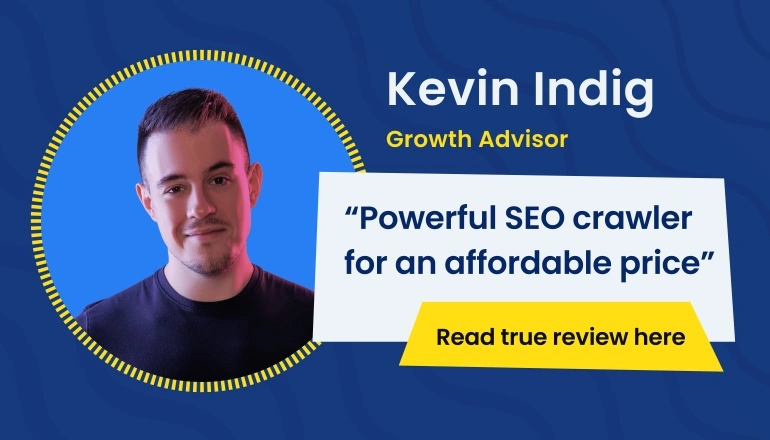
Quantity vs Quality in SEO is a Myth: Here’s Why
Knowing how to move from small-scale content production to managing thousands of product descriptions, internal linking strategies, and multi-channel marketing can seem like a daunting task. So what is the best course of action for companies that want to grow online? Let’s explore some strategies that are proven ways to ease the stress of scaling up content production.
What is SEO Content?
Before we explain how to scale your content to blend quality and quantity, we need to explain exactly what we mean by SEO content. For those coming from traditional marketing, SEO can be a little different, so a quick introduction really helps. SEO refers to “Search Engine Optimisation.” While old-style content was optimized to attract attention and inform buyers, online content creation now requires the ability to rise up Google search rankings. Content has to be tailored to the needs of search engines and readers at the same time. This means writing fluent texts, adding high-value keywords, and making sites easy for search engines to scan.
Why is SEO important in content marketing?
Dominating search rankings gives companies a huge advantage. For instance, the top-ranked site in Google searches tends to attract 33-36% of all traffic, so it definitely helps to occupy the number one spot. But it’s not all about being number one. Nowadays, SEO specialists need to know how to feature in Google Snippets (the “how to” guides which appear under many searches). They need to take into account services like Google Maps, which drive local traffic. And they need to know how to balance long-form, informative content, with keyword-driven texts. All of this feeds into content marketing. It’s like a complex juggling act, where marketers throw into the air keywords, how-to guides, internal links, map and business listings, mobile optimization, optimizing headers, and getting meta descriptions spot on. When done right, your site will rank highly. But more importantly, your cost per click will be kept as low as possible, and your ROI will soar.
How to write SEO content for websites
These are just a few principles that SEO experts keep in mind at all times, and which you’ll have to master if you want to replicate their success.
The starting point: solid keyword research
Keywords matter. Where SEO is concerned, they always will do. These are words or phrases (also known as long-tail keywords) which appear in popular searches related to your content. The idea is to find the most relevant keywords and create content based around them which is relevant and well-written. This doesn’t mean mentioning “hamburger restaurant” 25 times and leaving it there. Stats show that 50% of Google searches feature 4 words or more. So you’ll need to know how to come up with the kind of phrases users employ. And that becomes even trickier when voice commands are brought into the equation. Having the right keywords for each text is like the foundation of a building. You can’t succeed in SEO without them, but what comes next involves a different process: creativity.
Always write for your audience
When it comes to creating content, good SEO writers are like alchemists. They turn the base materials (keywords) into gold (literally conversions for your business). One way they do so is by understanding their audience and giving them what they need. Nowadays, we can learn a lot about our audience from CRM, Facebook communities, and social media queries. We can even carry out audience analysis which tracks conversations about our brands. By doing so, we can create buyer personas who accurately represent the people we serve. Good writers can engage with these personas – not a simple task.
Enrich your text with the most relevant vocabulary
The other aspect of turning keywords into gold is creating relevant texts which answer customer queries. Relevance really matters for SEO, now more than ever. That’s because Google has changed its algorithms to privilege content which “helps” users. That’s where the snippets and how-to boxes have come from. If writers can provide relevant guidance using the correct keywords, featuring in those boxes is well within reach. But in any case, companies that provide useful, well-written content will always score highly. That could be due to instant SEO success, or over the long term as evergreen content pays off. Either way, it’s a good reason to invest in skillful content production.
Include internal links
SEO writing is about structure, not just creativity. Getting the skeleton of a text right goes a long way towards rising up the search rankings. Few elements are as important as internal links. These links refer to pages on your own website, and they can have a huge impact on organic traffic (Ninja Outreach reckons a strong internal linking game can boost traffic by 40%). In fact, in some ways internal links matter more than ever. They help users get around your site, giving each page a shot at attracting traffic. They also provide an “in” for search engines to index your pages. Both factors matter in SEO, where clearly-structured websites tend to do well.
How long should SEO content be?
Finally, good SEO writers have an instinct for how long each text should be. There are no rules about length, no matter what you might have heard. Some people are adamant that the optimal length of a post is 1,890 words. Others say 2,400, while some disagree, and champion shorter, punchier content. The truth is that the right length varies. If you are writing a long form article with plenty of information, go long. Go as long as you need to, but no longer than required to make your point. Longer texts receive more backlinks (from other sites), and Google seems to like them if they provide a service. However, waffle is no use at all. If you have nothing to say, don’t say it. Or, say it in 500 words with the right keywords and impeccable grammar. SEO experts know when to expand and contract content lengths to achieve maximum impact.

The best way to scale up content production
We all know that SEO matters. And we all know that scaling up content can be a nightmare. But solutions exist that make the task easier. It’s not necessarily a good idea to look inward to produce the content required. Employing large internal SEO departments is too costly for most companies. At the same time, dealing with freelancers is time-consuming and unreliable. There’s only really one way to do so: finding a way to outsource content marketing.
Outsource content creation to beat the competition
Outsourcing can sometimes raise alarm bells. It can be associated with a loss of control over content and quality, and raises the risk of diluting brand messages. But those fears are only related to poorly managed content outsourcing. In reality, reaching out to specialist agencies can allow you to scale your content without any anxieties. Agencies are full of SEO professionals – both in the analysis and content creation departments. They can come up with keywords, linking strategies, content lengths, and subjects. They can write to demanding briefs, and commission pools of writers to create large quantities of texts. This essentially automates the content creation process, eliminating the need to work with individual professionals. It’s a great way to cut costs, while still obtaining high-quality texts. In short, cutting edge content agencies can probably do what you can’t, and if you need to expand your content production safely and sustainably, they are the best available option. Sure, you can remain small-scale and slow down your expansion. But by reaching out to agencies, online growth isn’t that hard to achieve.
Get more useful info: Internal links matter more than ever


